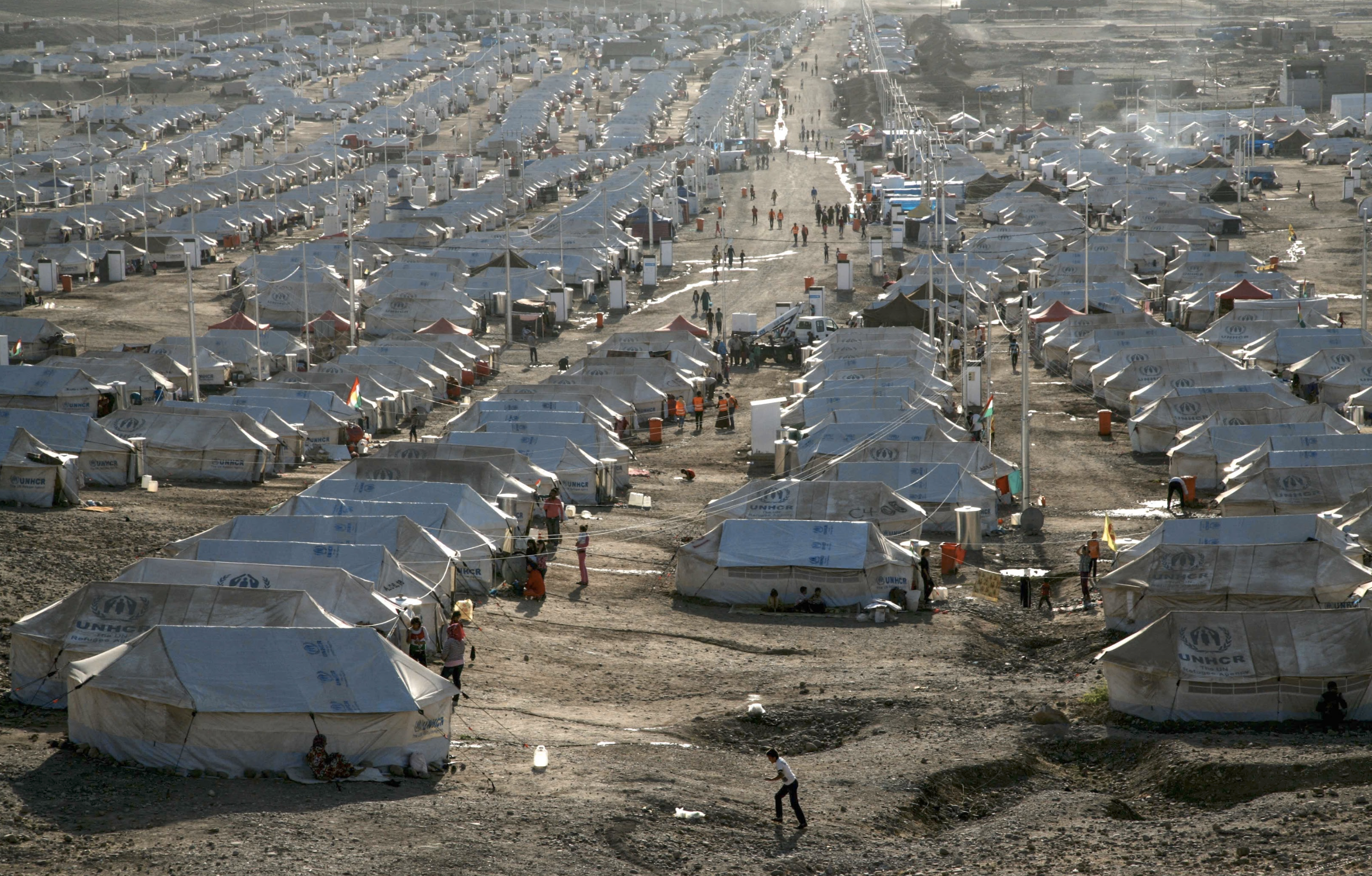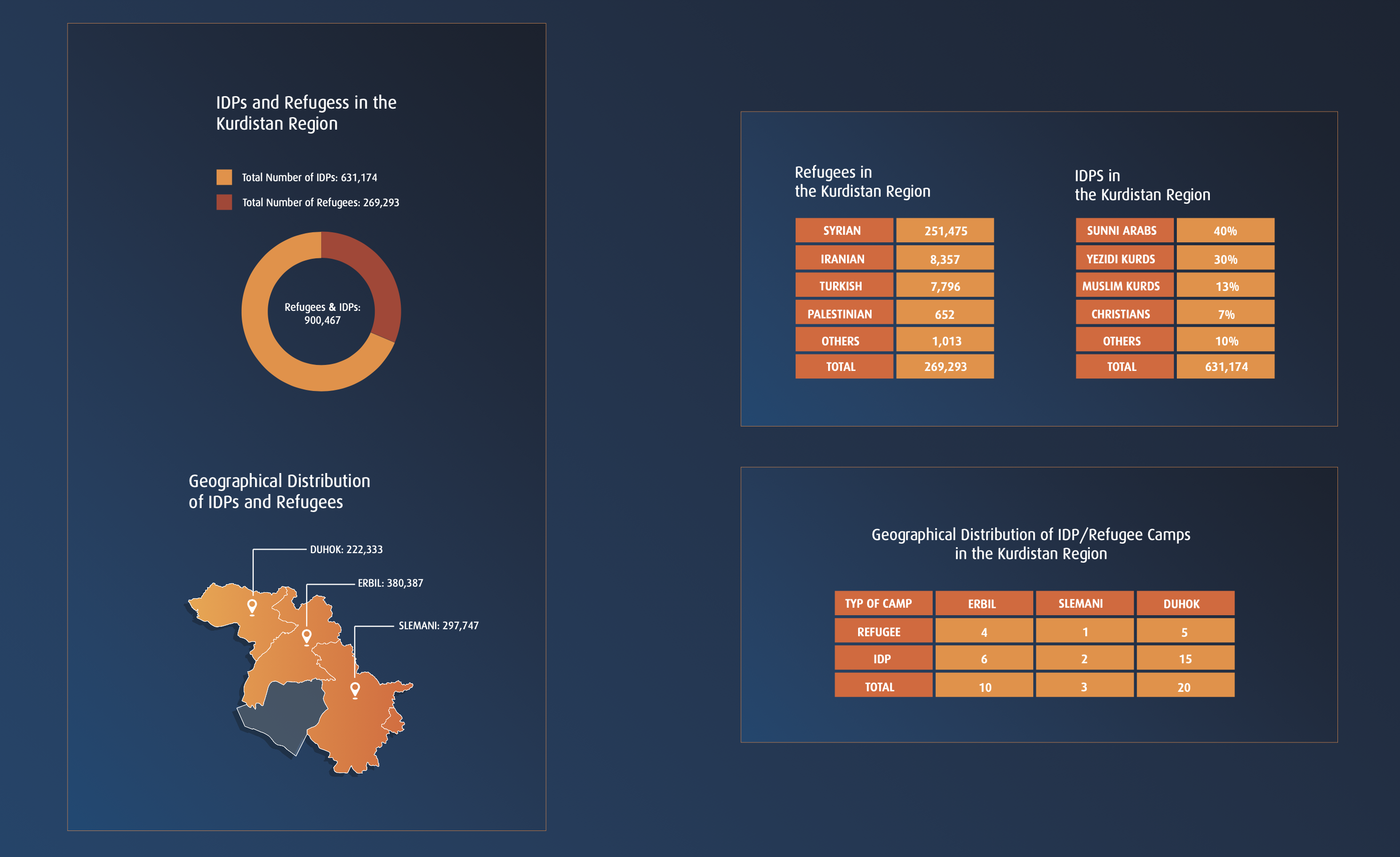The Kurdistan Region of Iraq, despite political and economic struggles, has become a sanctuary for hundreds of thousands of refugees and internally displaced persons (IDPs) fleeing conflict and persecution in Iraq and the wider region. This influx, while showcasing Kurdish hospitality and the humanitarian spirit of its people, presents significant challenges for host communities and raises questions about long-term solutions.
The Kurdistan Region’s commitment to offering sanctuary is well-established. During the harrowing fight against ISIS (2014-2018), the region sheltered over two million refugees and IDPs.
As of late 2023, the region sheltered a staggering 900,467 individuals, comprising 760,189 IDPs and 269,293 refugees. Syrians constitute the largest group, with over 251,000 individuals seeking refuge in the region. Notably, 70% of these displaced people reside outside designated camps, having integrated into urban areas.

Erbil shoulders the heaviest burden, housing 41% of the displaced population, followed by Duhok (40%) and Sulaymaniyah (19%).
A glimpse into the numbers
Total registered refugees: 269,293 Total registered IDPs: 631,174 Syrian refugees: 251,475 New arrivals in November-December 2023: 3,389 While the Kurdistan Region’s open-door policy is commendable, the sheer number of displaced individuals presents enormous challenges, including:
While the Kurdistan Region’s open-door policy is commendable, the sheer number of displaced individuals presents enormous challenges, including:

Addressing this complex situation requires a multifaceted approach. Some important objectives include:
Increased international support: Financial and humanitarian aid are crucial to assisting the Kurdistan Regional Government and non-governmental organizations in meeting the needs of displaced populations. Durable solutions: Facilitating voluntary return to areas of origin when they are deemed safe, resettlement in third countries, or local integration are key options. Economic development: Fostering economic opportunities for both host communities and displaced individuals can promote integration and self-reliance. Regional stability: Addressing the root causes of displacement, such as conflict and insecurity, is essential for long-term solutions.Sardar Sattar is a translator and journalist based in the Kurdistan Region. He has an MA in English Studies from the University of Lodz, Poland. He has translated several books and political literature into Kurdish and English. He writes regularly for local and international newspapers and journals.